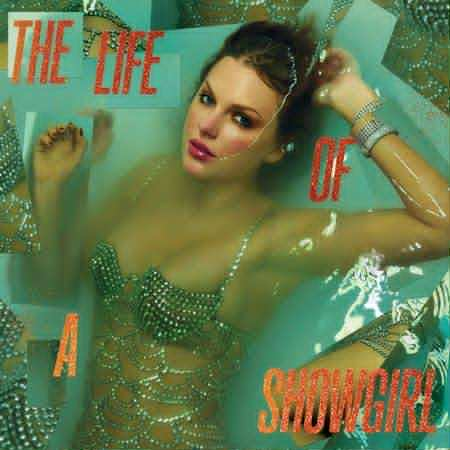
Taylor Swift’s “The Life of a Showgirl” comes with all the glamour and theatricality one would expect from the global superstar. Yet—despite its ambition—the album ultimately struggles to deliver the depth many fans expected. Conceptually, the track revolves around a showgirl persona, exploring the spectacle of performance, fame and personal identity. While the idea is intriguing on the surface, it often comes at the expense of the nuanced storytelling and emotional depth that have long defined Swift’s songwriting. Many of the lyrics prioritize being “clever” over truly introspective, which creates a sense of cohesion in tone and style, but also an emotional flatness.
For example, in tracks like “CANCELLED!”, the lyrics rely heavily on pop-culture references, many of which involve Swift’s past disputes. Lines like “Something wicked this way comes / Good thing I like my friends cancelled / I like ’em cloaked in Gucci and in scandal” attempt to critique public perception of love or fame, but can feel more performative than revealing.
Similarly, “Wood” offers playful explorations of romance using bright melodies and clever wordplay in the lines “Forgive me, it sounds cocky / He ah-matized me and opened my eyes / Redwood tree, it ain’t hard to see / His love was the key that opened my thighs.”
Yet the lyrics rarely linger on the emotional stakes of these relationships, favoring quick, catchy phrases that entertain without probing deeper feelings. Frequent references to contemporary culture, social media and celebrity life aim to ground the record in the present, but they often come across as trend-driven, prioritizing immediacy over introspection.
The tendency towards superficiality is further compounded by the production. After the stripped-down intimacy of the releases “Folklore” and “Evermore”, Swift’s return to glossy pop disappointed many listeners who had hoped for continued experimentation in melody, structure or arrangement. Working with longtime collaborators like Max Martin and Shellback, Swift fills the track with lush synths, glossy hooks and layered production meant to evoke spectacle and grandeur. Yet beneath the surface, the songs rely on consistent, predictable rhythms and familiar pop structures that make the sound feel safe rather than daring. This polished consistency creates an easy listen but limits the album’s emotional impact. The spectacle is there, but the emotional resonance is less pronounced.
“The Life of a Showgirl” continues a trend towards pop-oriented production first emphasized in “Midnights” and “The Tortured Poets Department” (TTPD). Those collections leaned more heavily on catchy hooks, polished synth textures and sleek rhythmic patterns—a massive shift from the earlier introspective folk-pop of “Folklore” and “Evermore”. While both “Midnights” and “TTPD” had moments of brilliance, they too could feel somewhat safe, prioritizing radio-friendly accessibility over the emotional risk-taking that defined Swift’s best work. This album fits into the broader trajectory of Swift increasingly leaning into persona-driven, polished pop, at the expense of sensible lyrics, resulting in songs that are consistently enjoyable yet subtly underwhelming.
“The Life of a Showgirl” shows that Taylor Swift has now fully become lost in her own reflection. It’s a project obsessed with presentation, one that mistakes shine for the soul. For an artist who once turned heartbreak into poetry, this latest act feels like a performance in search of meaning, a spectacle too polished to bleed.
